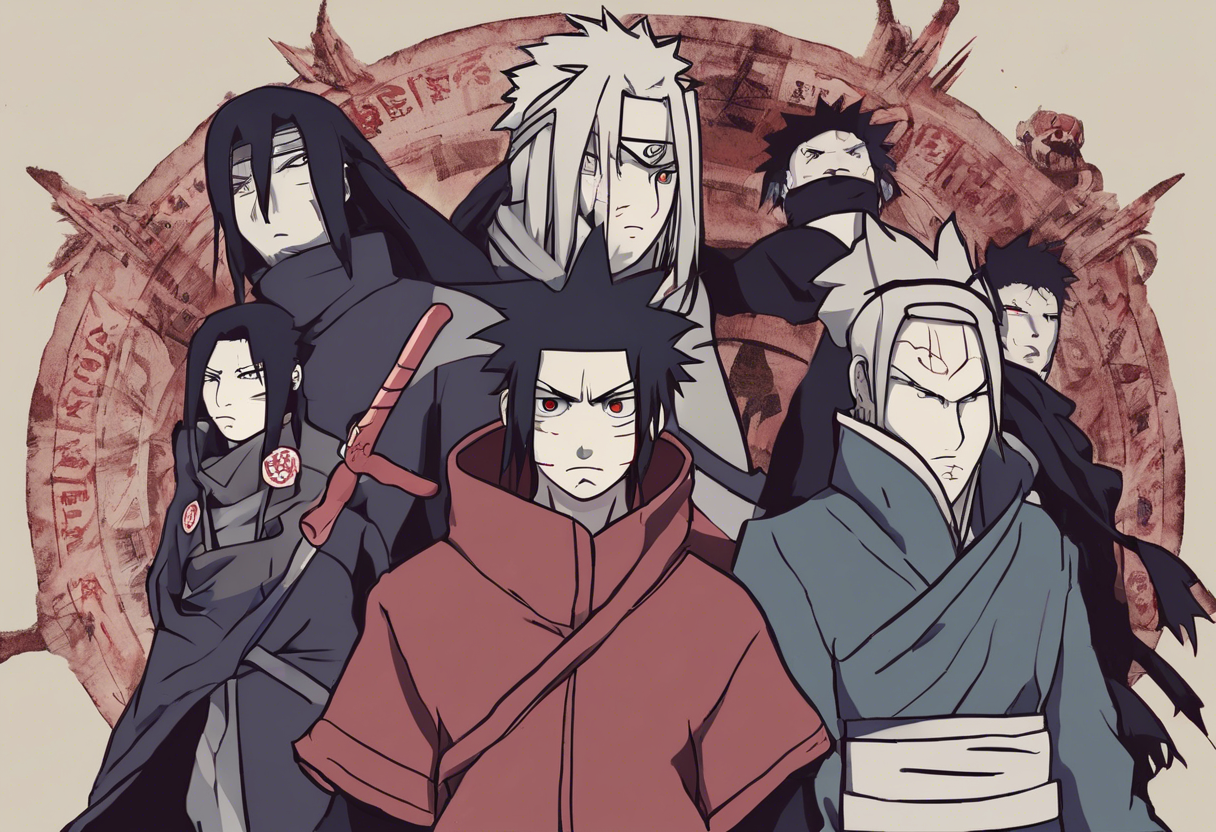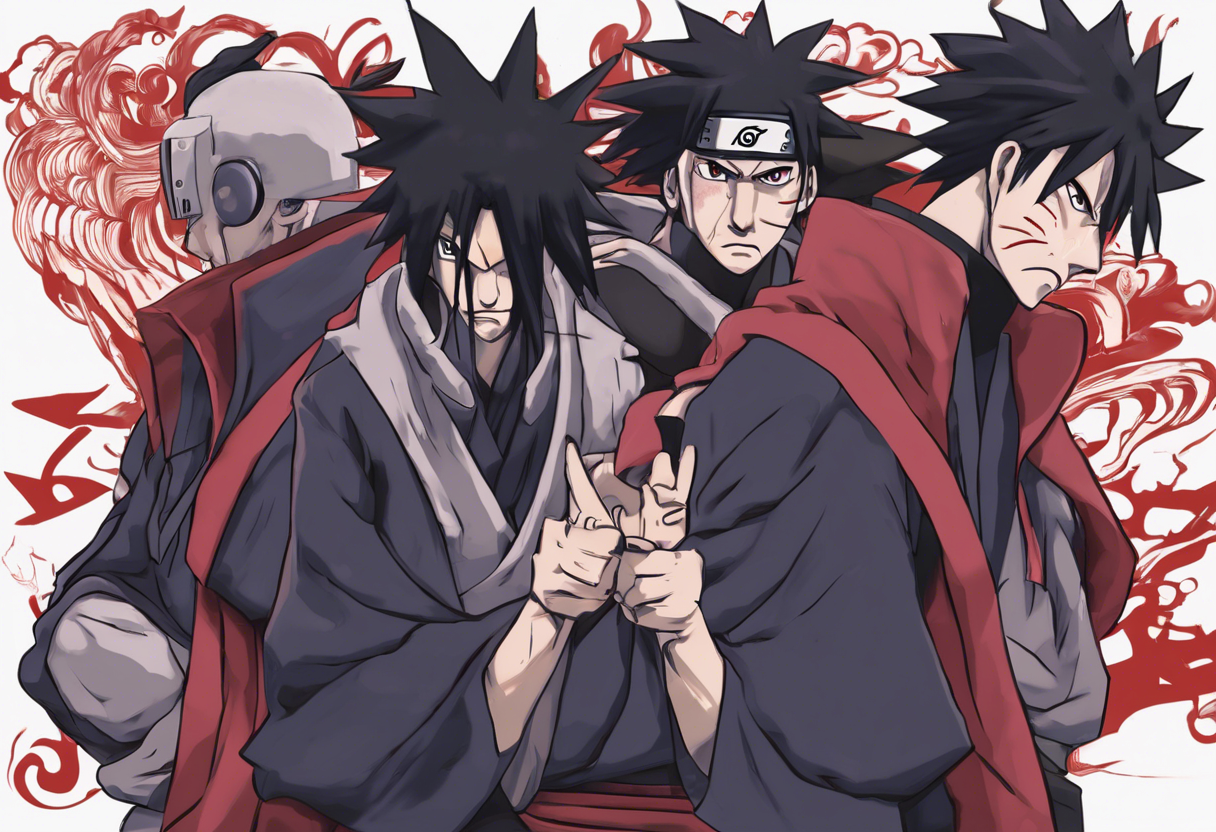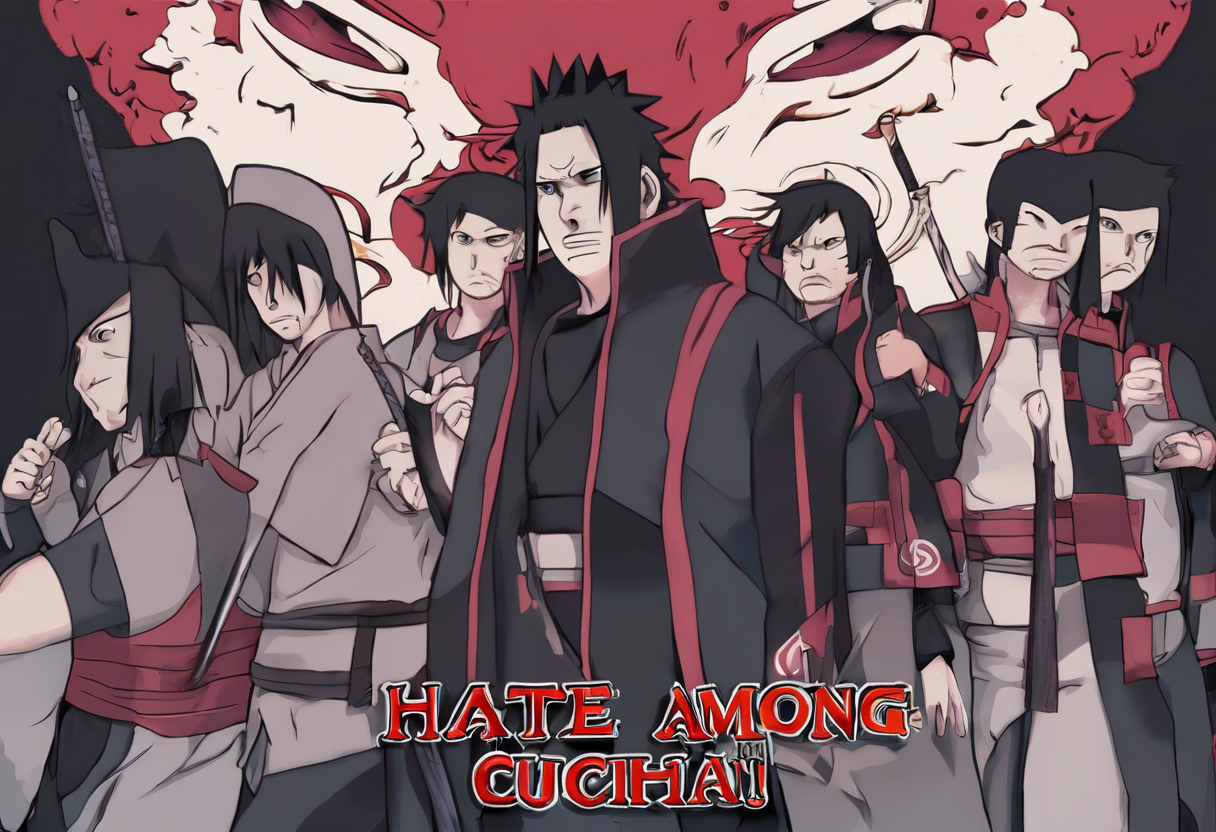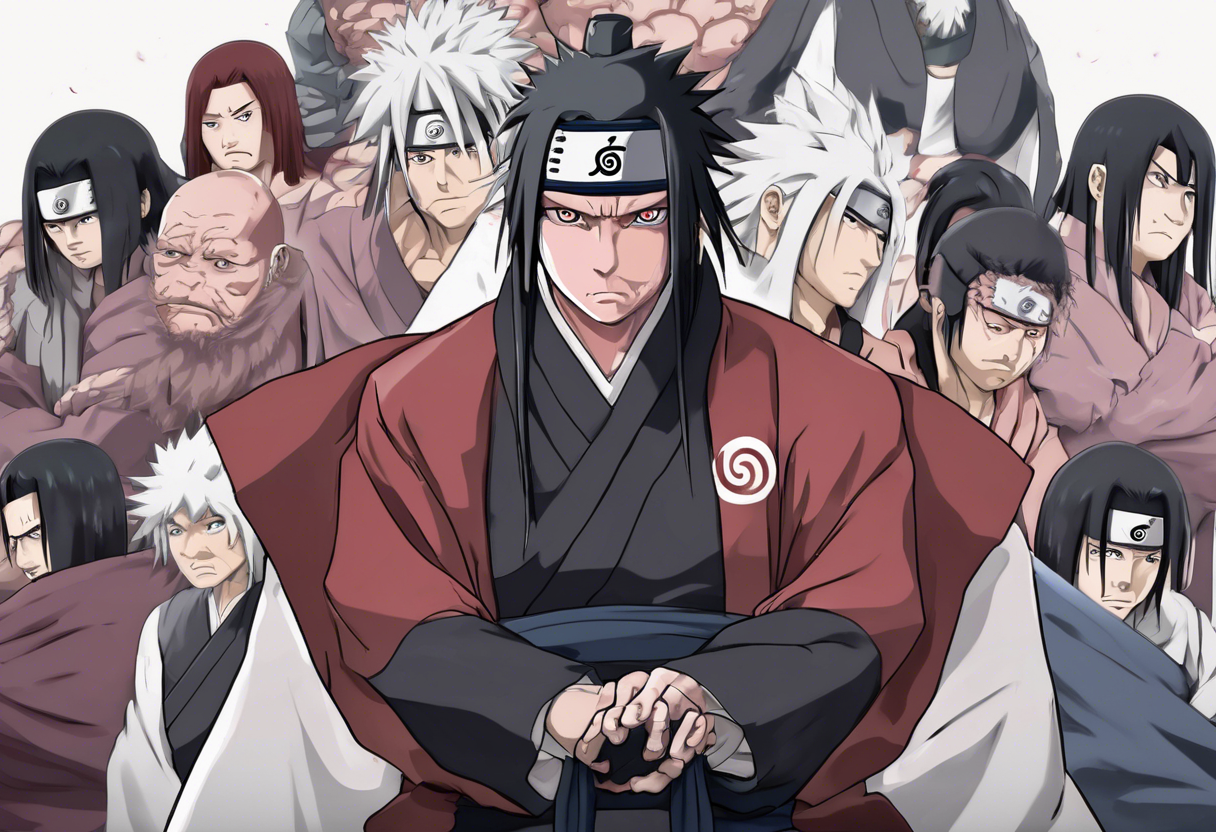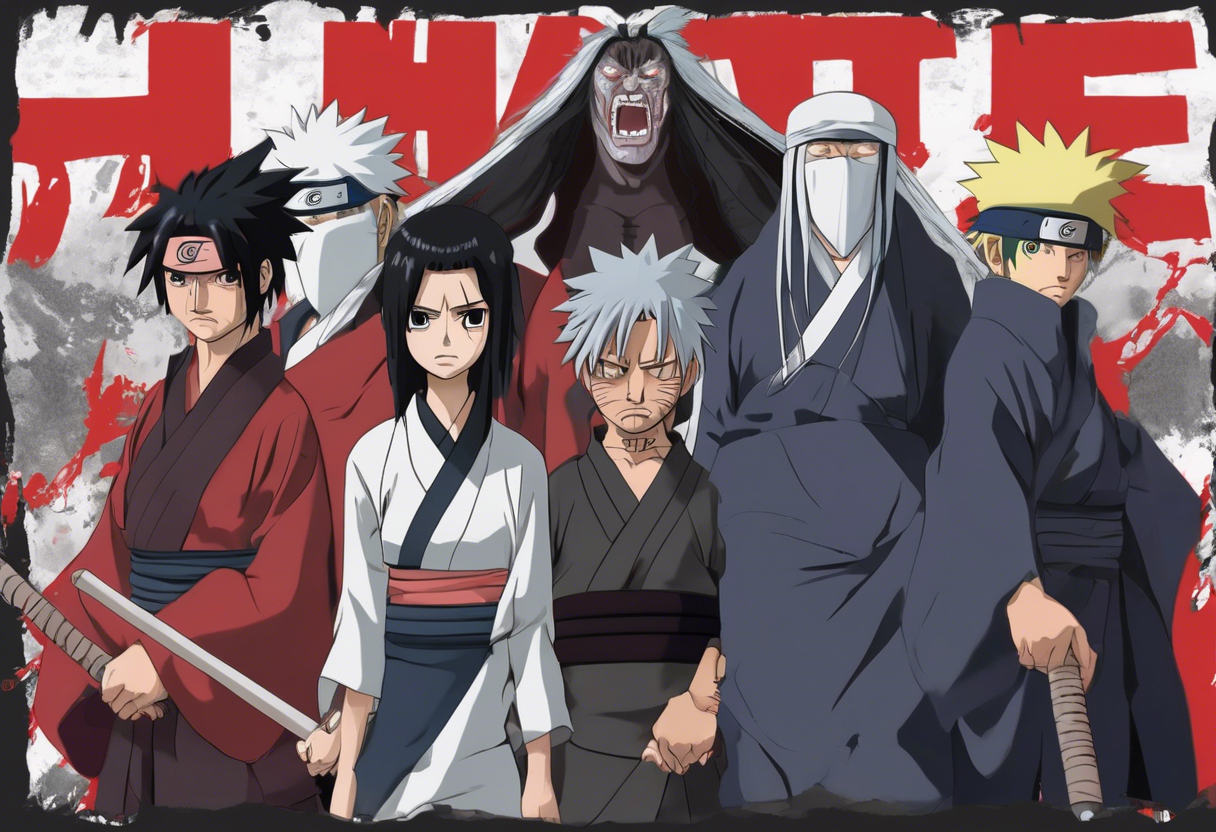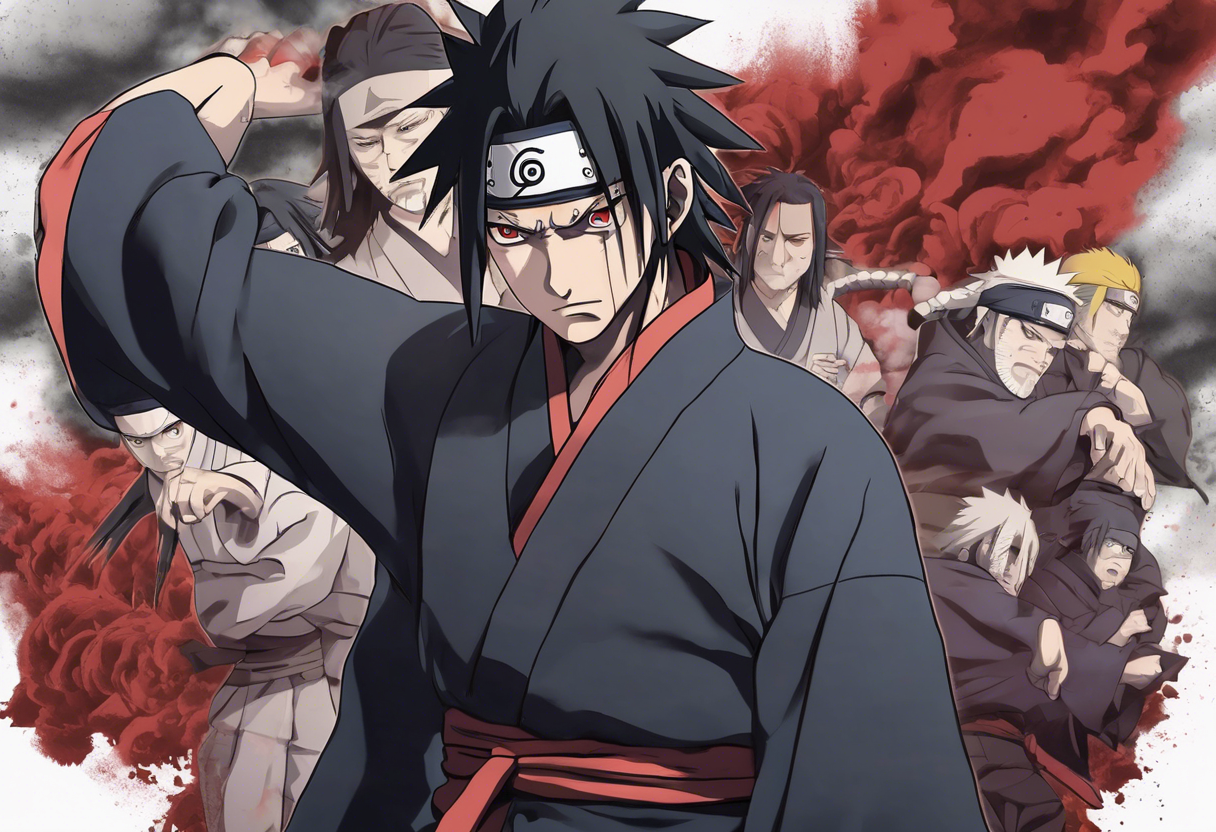Contents
Introduction
"Hate Among the Uchihas: The Last of the Clan!" is not a standalone anime or episode title but rather a thematic element within the broader narrative of the popular anime and manga series "Naruto" created by Masashi Kishimoto. This theme is particularly prominent in episodes and arcs that focus on the Uchiha Clan, their history, and their struggles.
The "Naruto" series, adapted from Kishimoto’s manga, is a shounen anime that follows the adventures of Naruto Uzumaki, a young ninja aiming to become the Hokage of his village. The Uchiha Clan, one of the most powerful and influential clans in the series, plays a crucial role in the narrative, especially through characters like Sasuke Uchiha and Itachi Uchiha.
The production of "Naruto" involved key creative figures such as Masashi Kishimoto as the original creator, Hayato Date as the director for the anime adaptation, and several writers and producers who contributed to the series over its run. The anime was produced by Studio Pierrot and aired from 2002 to 2007, with a sequel series "Naruto: Shippuden" continuing the story.
What sets "Naruto" apart, including its Uchiha-centric storylines, is its deep exploration of themes such as friendship, sacrifice, and the complexities of human emotions, particularly the Uchiha’s Curse of Hatred.
Plot Summary
The storyline involving the Uchiha Clan’s internal conflicts and their eventual near-extinction is a pivotal part of the "Naruto" narrative. Here is a summary of the key events and characters involved:
The Uchiha Clan, known for their powerful dojutsu (eye technique) called the Sharingan, were once a dominant force in the Hidden Leaf Village. However, their history is marred by internal strife and a cycle of hatred and revenge. The clan’s downfall begins with the massacre orchestrated by Itachi Uchiha, who kills most of his clan members to protect the village from what he perceives as a potential threat[4].
Sasuke Uchiha, Itachi’s younger brother, survives this massacre and becomes driven by a desire for revenge against Itachi. This arc explores the complex relationships within the Uchiha Clan, particularly the bond between Itachi and Sasuke, and the reasons behind Itachi’s actions[3].
The plot delves into the Uchiha’s Curse of Hatred, which stems from their intense emotional sensitivity. This curse is linked to the Sharingan’s powers, which evolve through traumatic experiences and the loss of loved ones. The Mangekyo Sharingan, a more advanced form of the Sharingan, is awakened under extremely traumatic circumstances[3].
Themes and Symbolism
The Uchiha Clan’s storyline in "Naruto" is rich in themes and symbolic elements that contribute significantly to the series’ depth and resonance.
The Curse of Hatred
The Uchiha’s Curse of Hatred is a central theme, highlighting how intense emotions, particularly those of love and loss, can transform into hatred. This curse is contrasted with the Senju Clan’s Will of Fire, which emphasizes selflessness and self-sacrifice for the greater good[3].
Family and Loyalty
The relationships within the Uchiha Clan, especially between Itachi and Sasuke, are symbolic of the complexities of family bonds and loyalty. Itachi’s actions, though seemingly villainous, are motivated by a twisted sense of loyalty and protection for his brother and the village[4].
Power and Ambition
The Uchiha Clan’s pursuit of power and their unique abilities serve as a commentary on the dangers of ambition and the consequences of seeking power at any cost. The Sharingan, a symbol of their power, also represents the emotional burdens they carry[4].
Cultural Impact
The Uchiha Clan’s storyline has had a significant cultural impact, both within the "Naruto" fandom and broader pop culture.
Fandom Reception
The episodes and arcs focusing on the Uchiha Clan have been highly acclaimed by fans for their emotional depth and complex character development. The tragic history of the Uchiha Clan and the characters’ struggles resonate deeply with audiences[2].
Influence on Pop Culture
The "Naruto" series, including its Uchiha-centric storylines, has influenced numerous other anime and manga series. The themes of family, loyalty, and the struggle between light and darkness are common in many subsequent works[4].
Adaptations and References
The Uchiha Clan’s story has been referenced and adapted in various forms of media, including fan fiction, video games, and other anime series. The character of Sasuke Uchiha, in particular, has become an iconic figure in anime culture[1][5].
Critical Reception
The critical reception of the Uchiha Clan’s storyline in "Naruto" has been largely positive, with praise for its complex characters, engaging plot, and thematic depth.
Initial Reception
Upon its initial release, the series received high praise for its storytelling, character development, and emotional impact. The Uchiha Clan’s arcs were particularly noted for their intensity and emotional resonance[2].
Long-term Impact
Over the years, the series has continued to be celebrated for its contribution to the shounen genre. The Uchiha Clan’s story has been analyzed in various academic and fan communities, highlighting its significance in the broader context of anime and manga[4].
Controversies and Interpretations
There have been differing interpretations and controversies surrounding the Uchiha Clan’s actions and motivations. Some viewers have criticized the clan’s portrayal as overly villainous, while others have defended their complex and nuanced characterization[4].
Legacy
The Uchiha Clan’s storyline in "Naruto" has left a lasting legacy in the world of anime and manga.
Influence on Filmmakers and Artists
The series has inspired numerous filmmakers and artists, particularly in the shounen genre. The themes and character dynamics explored in the Uchiha Clan’s story have been influential in shaping subsequent works[4].
Enduring Relevance
The Uchiha Clan’s narrative continues to resonate with audiences today, making it a timeless part of anime history. The series’ exploration of complex emotions, family bonds, and the struggle for power remains relevant and engaging[3].
Conclusion
"Hate Among the Uchihas: The Last of the Clan!" is a thematic element that encapsulates the complex and emotionally charged narrative of the Uchiha Clan within the "Naruto" series. Through its deep exploration of themes, symbolic elements, and cultural impact, this storyline has become an integral part of anime history.

